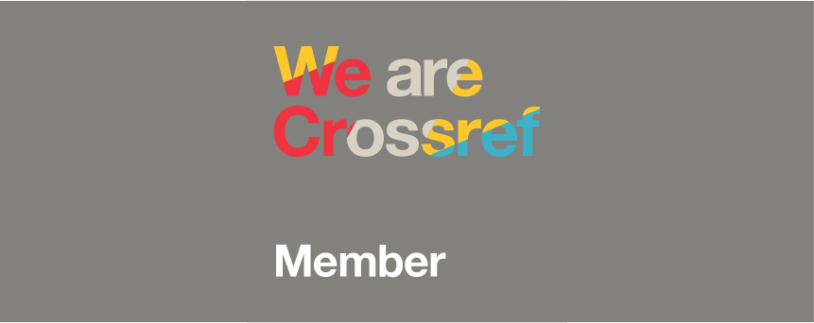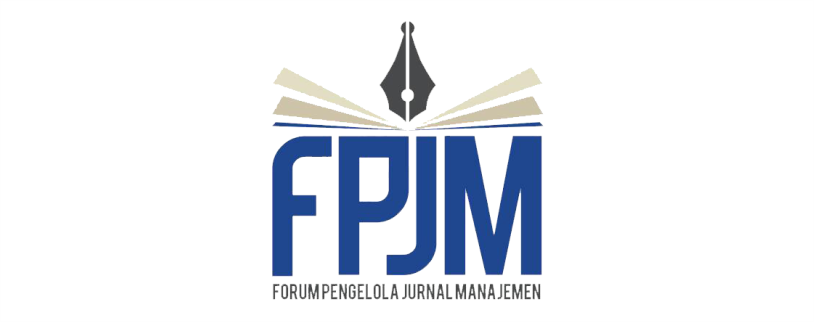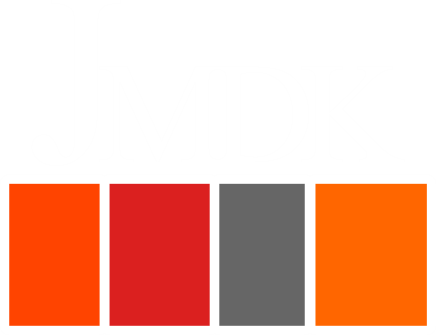Entrepreneurship Education and Academic Support Influence Students' Entrepreneurial Intention with Parental Role as Moderator
DOI:
https://doi.org/10.26905/jmdk.v11i1.9827Keywords:
Academic Support, Entrepreneurship Education, Entrepreneurial Intentions, Role of ParentsAbstract
This study aims to examine the influence of entrepreneurship education and academic support on student entrepreneurship intentions, taking into account the moderating role of parents. The explanatory research approach was used to explain the relationships between variables and to test the hypotheses. The study’s population consists of 273 undergraduate Management students of FEB UKSW who joined in 2019. A sample of 159 students was selected using simple random sampling. The findings revealed that entrepreneurship education has a positive effect on student entrepreneurial intentions, and the role of parents with entrepreneurial backgrounds has a moderating effect that amplifies the effect of entrepreneurship education on student entrepreneurial intentions. Meanwhile, academic support is not a driver of the emergence of student entrepreneurial interest, thus other factors that may contribute to student entrepreneurial interest in the context of higher education must be investigated further.
Downloads
References
Ajzen, I. (1991). The theory of planned behavior. Organizational Behavior and Human Decision Processes, 50(2), 179–211.
https://doi.org/10.1016/0749-5978(91)90020-T
Ajzen, I. (2005). Attitudes, personality, and behavior. In International Journal of Strategic Innovative Marketing, 3, 117–191.
Akyol, S., & Gurbuz, G. (2008). Entrepreneurial intentions of young educated public in Turkey. Journal of Global Strategic Management, 2(2), 47–47. https://doi.org/10.20460/jgsm.2008218486
Alfiyan, A. R., Qomaruddin, M., & Alamsyah, D. P. (2019). Pengaruh pendidikan kewirausahaan dan dukungan akademik terhadap niat kewirausahaan mahasiswa. Jurnal Kajian Ilmiah, 19(2), 175–181.
Ariffin, Z., & Ziyad, M. (2018). Pengaruh pekerjaan orang tua, pendidikan kewirausahaan dan asal etnis terhadap minat berwirausaha mahasiswa Fakultas Ekonomi dan Bisnis Universitas Lambung Mangkurat. Jurnal Sains Manajemen dan Kewirausahaan (JSMK), 2(1).
http://ppjp.unlam.ac.id/journal/index.php/jsmk
Aryaningtyas, A. T. (2018). Dukungan akademik moderasi hubungan kepribadian proaktif terhadap niat kewirausahaan mahasiswa. Media Ekonomi dan Manajemen, 33, 175–186.
Aryaningtyas, A. T., & Palupiningtyas, D. (2017). Pengaruh pendidikan kewirausahaan dan dukungan akademik terhadap niat kewirausahaan mahasiswa (Studi pada mahasiswa STIEPARI Semarang). Jurnal Ilmiah Manajemen & Bisnis, 18(2), 140. https://doi.org/10.30596/jimb.v18i2.1398
Badan Pusat Statistik. (2020). Pengangguran terbuka menurut pendidikan tertinggi yang ditamatkan (orang), 2019-2020. Badan Pusat Statistik. Retrieved from:
Badan Pusat Statistik. (2022). Pengangguran terbuka menurut pendidikan tertinggi yang ditamatkan (orang), 2021-2022. Badan Pusat Statistik. Retrieved from:
Dalimunthe, R. F., & Qamariah, I. (2014). Role of parents in childrens’ career selection as an entrepreneur. International Journal of Economics, Commerce and Management United Kingdom, II.
Darmawan, D. (2020). Profesionalisme, motivasi berprestasi, komitmen organisasi dan pengaruhnya terhadap intensi berwirausaha. Ekuitas (Jurnal Ekonomi dan Keuangan), 3(3), 344–364. https://doi.org/10.24034/j25485024.y2019.v3.i3.4167
Diyah, L. H., & Johan, A. S. (2020). Academic support, social support, environmental support and entrepreneurship education sebagai faktor kontekstual yang mempengaruhi minat berwirausaha mahasiswa. Majalah Ilmiah Manajemen dan Bisnis, 17(1).
Fatoki, O. (2014). The Entrepreneurial intention of undergraduate students in South Africa: The influences of entrepreneurship education and previous work experience. Mediterranean Journal of Social Sciences, 5(7), 294–299.
https://doi.org/10.5901/mjss.2014.v5n7p294
Ghozali, I. (2018). Aplikasi Analisis Multivariate SPSS 25. (9th ed.). Universitas Diponegoro.
Harianti, A., Malinda, M., Nur, N., Suwarno, H. L., Margaretha, Y., & Kambuno, D. (2020). Peran pendidikan kewirausahaan dalam meningkatkan motivasi, kompetensi dan menumbuhkan minat mahasiswa. Jurnal Bisnis dan Kewirausahaan, 16(3), 214–220.
https://doi.org/10.31940/jbk.v16i3.2194
Ikhtiagung, G. N., & Soedihono, S. (2018). Pengaruh dukungan akademik dan faktor sikap terhadap keinginan berwirausaha bidang teknologi (technopreneur) pada mahasiswa. Jurnal Ilmiah Manajemen dan Bisnis, 19(1), 1–20. https://doi.org/10.30596/jimb.v19i1.1618
Kusmintarti, A., Riwajanti, N. I., & Asdani, A. (2017). Pendidikan kewirausahaan dan intensi kewirausahaan dengan sikap kewirausahaan sebagai mediasi. Journal of Research and Applications: Accounting and Management, 2(2), 119.
https://doi.org/10.18382/jraam.v2i2.160
Looi, K. H., & Khoo-Lattimore, C. (2015). Undergraduate students’ entrepreneurial intention: Born or made? International Journal of Entrepreneurship and Small Business, 26(1), 1–20.
https://doi.org/10.1504/IJESB.2015.071317
Marlinna, B. (2012). Analisis pengaruh pendidikan kewirausahaan terhadap niat kewirausahan mahasiswa (Studi kasus pada Mahasiswa Program Ekstensi Fakultas Ekonomi Universitas Indonesia). Skripsi. Jurusan Manajemen UI (Salemba).
Mustaqim, M. (2017). Membangun intensi wirausaha mahasiswa: Studi pada Mahasiswa Prodi MBS Dan ES STAIN Kudus. Equilibrium: Jurnal Ekonomi Syariah, 5(1), 134–149.
Nandamuri, P. P. (2016). An analysis of family occupational background as a construct of Entrepreneurial Orientation among the Youth. Amity Journal of Entrepreneurship ADMAA, 1(1).
Pratama, W. A., & Putra, Y. Y. (2019). Perbedaan minat berwirausaha mahasiswa psikologi ditinjau dari latar belakang pekerjaan orang tua. Jurnal Riset Psikologi, 2019(3).
https://doi.org/http://dx.doi.org/10.24036/jrp.v2019i3.6113
Putra, D. A. (2021, April 17). Jumlah wirausaha indonesia jauh di bawah Malaysia dan Thailand. Merdeka.Com.
Santi, N., Hamzah, A., & Rahmawati, T. (2017). Pengaruh efikasi diri, norma subjektif, sikap berperilaku, dan pendidikan kewirausahaan terhadap intensi berwirausaha. Jurnal Inspirasi Bisnis dan Manajemen, 1(1), 63–74.
Setyanti, S. W. L. H., Cahyani, P. E., & Sudarsih, S. (2021). Pengaruh pendidikan kewirausahaan, efikasi diri berwirausaha dan faktor lingkungan terhadap minat berwirausaha mahasiswa perguruan tinggi Islam di Jember. Jurnal Manajemen Dan Kewirausahaan, 9(1), 64.
https://doi.org/10.26905/jmdk.v9i1.5518
Suasana, I. Gst. A. Kt. Gd., Ekawati, N. W., Sudiana, I. K., & Wardana, I. G. (2019). Dampak pendidikan kewirausahaan pada Entrepreneur Behavior Index (EBI) dan intensi berwirausaha mahasiswa Fakultas Ekonomi dan Bisnis Universitas Udayana di Denpasar. Matrik : Jurnal Manajemen, Strategi Bisnis dan Kewirausahaan, 14(1), 31. https://doi.org/10.24843/matrik:jmbk.2020.v14.i01.p04
Sugiyono. (2018). Metode Penelitian Manajemen : Pendekatan : 1. Kuantitatif 2. Kualitatif 3. Kombinasi (mixed methods) 4. Penelitian tindakan (action research) 5. Penelitian evaluasi. Edisi ke-6. Alfabeta.
Suharti, L., & Sirine, H. (2012). Faktor-Faktor yang berpengaruh terhadap niat kewirausahaan (entrepreneurial intention) (Studi terhadap mahasiswa Universitas Kristen Satya Wacana, Salatiga). http://203.189.120.189/ejournal/index.php/man/article/view/18329
Tambunan, F. (2022). Pengaruh modal usaha terhadap sikap berwirausaha dan peran orang tua sebagai variabel moderating. Jurnal Maksipreneur: Manajemen, Koperasi, dan Entrepreneurship, 12(1), 115. https://doi.org/10.30588/jmp.v12i1.972
Wiratna, D. Y., & Tambunan, F. (2017). Pengaruh peran orangtua sebagai pendiri terhadap keberhasilan wirausaha di Kelurahan Helvetia Tengah Medan Tahun 2017.
http://jurnal.uinsu.ac.id/index.php/tawassuth/article/view/1224
Downloads
Published
Issue
Section
License
Authors who publish with this journal agree to the following terms:
(1)Â Copyright of the published articles will be transferred to the journal as the publisher of the manuscripts. Therefore, the author confirms that the copyright has been managed by the journal.
(2) Publisher of Jurnal Penelitian is University of Merdeka Malang.
(3) The copyright follows Creative Commons Attribution–ShareAlike License (CC BY SA): This license allows to Share — copy and redistribute the material in any medium or format, Adapt — remix, transform, and build upon the material, for any purpose, even commercially.












